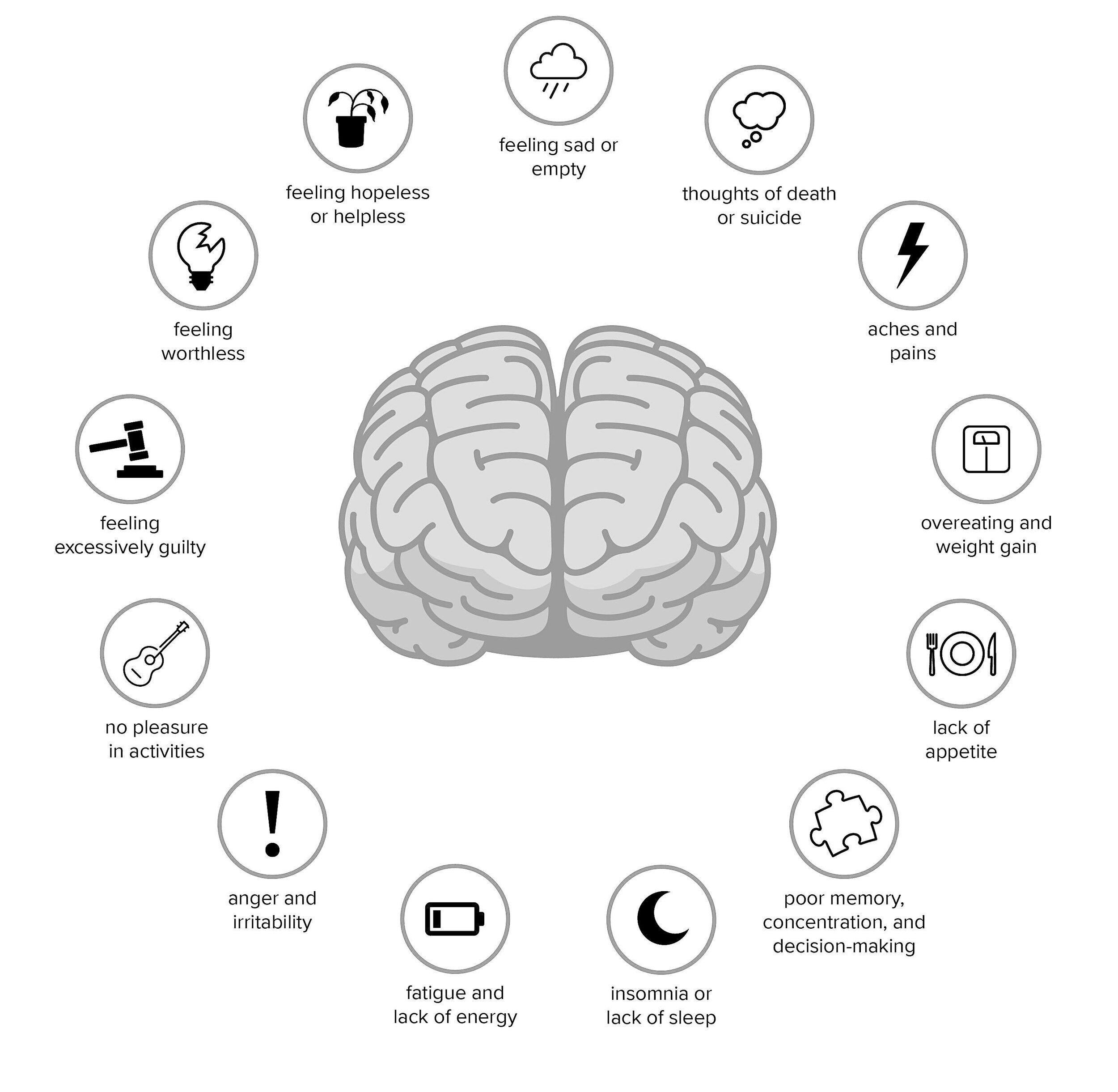
Understanding Depression
Module I | Session One
Session Overview
M1 | Session One: Understanding Depression
If you are feeling thoughts of self-harm please dial your relevant crisis number here.
|
Defining Depression
Causes of Depression
Effects of Depression
Session Skill: Write For Your Life
|
What Is Depression?
Depression is a mood disorder that causes a persistent feeling of sadness and loss of interest. Also called major depressive disorder or clinical depression, it affects how you feel, think and behave, and can lead to a variety of emotional and physical problems.
- The Mayo Clinic

What Causes Depression?
Neurobiology Factors
Research suggests that depression doesn't spring from simply having too much or too little of certain brain chemicals.
Depression can be the result of faulty mood regulation by the brain, genetic vulnerability, stressful life events, medications, and medical problems.
Depression is not a simple matter of one chemical being too low and another too high.
There are millions, even billions, of chemical reactions that are responsible for your mood, perceptions, and how you experience life.
Source: Harvard Medical School
Environmental Factors
Environmental threats to mental health include illicit drug usage, injuries, nutritional deficiencies and psychosocial conditions.
Psychosocial conditions include enduring instances of sexual abuse, falling victim to crime, the breakup of a relationship, etc.
Primal reactions, such as feelings of loss or danger, can push us toward a particular mental state such as depression.
“Feelings of pure loss might lead to depressive disorders, while feelings of pure danger might lead to anxiety disorders”
Source: National Institute of Health
Effects Of Depression
Depression Statistics
Major depression is an illness, not a weakness. It is not your fault you have depression.
|
264 million
people
264 million people worldwide live with depression.
1 in 5
women
Women are nearly twice as likely as men to be diagnosed with depression.
1 in 8
men
Men are less likely to seek treatment for depression.
18-25
years old
Depression rates are highest among young adults.
3 in 5
LGBT youth
60 percent of LGBQ youth reported being very sad or hopeless.
1 in 10
black youth
Black high schoolers report suicidal thoughts at almost twice the rate of white students.
|
Source: World Health Organization
YOU ARE NOT ALONE.
There are people just like you, in moments just like this. You can make it through this.
Session Skill
Write For Your Life
Writing out or talking out what is going on inside of you is a crucial life skill to help you regulate your emotions. You can do this on page 13 of Depression: A Guidebook or whatever is easiest for you (e.g, write on paper, type, or dictate into a notes app on your phone).
|
3 MINUTE JOURNALING
Start writing nonstop whatever comes to your mind in this moment. Try to write or speak for at least 3 minutes or until you feel a little lighter. If you need to, please use one of the prompts below.
What brought you to take this course?
What are you feeling right now and why?
What symptoms are you struggling with right now and why do you think this is?
What circumstances and/or feelings have been the most overwhelming over the last two weeks and why?
